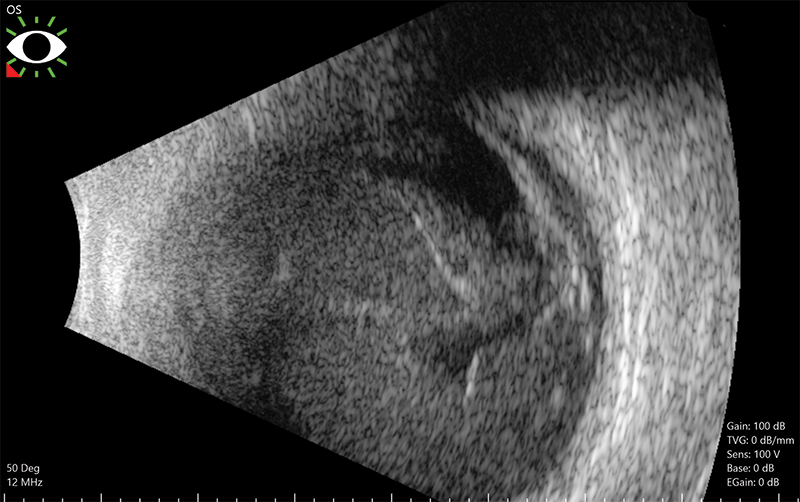Intraocular Infections (Endophthalmitis)
 ultrasound of Endophthalmitis
ultrasound of Endophthalmitis
What is Endophthalmitis?
Endophthalmitis in an infection involving both the inside (or the intraocular space) and the outside of the eye. Because this involves the inside of the eye, these infections tend to be more severe, having the potential to greatly affect the vision.
What causes Endophthalmitis?
Endophthalmitis can be caused from trauma to the eye (especially penetrating trauma), an infection in the body that travels into the eye, after intraocular injections (injection of medicine inside the eye), or after intraocular surgery (surgery inside the eye).
How is Endophthalmitis treated?
Endophthalmitis is considered an emergency. Often, a sample of fluid is taken from the eye, in order to find what organism is causing your infection. Then, you may need an injection of strong antibiotics into the eye to treat the infection. Some patients even need surgery to treat such an infection. The earlier that endophthalmitis is treated, the better chances you have of a full or nearly full recovery.